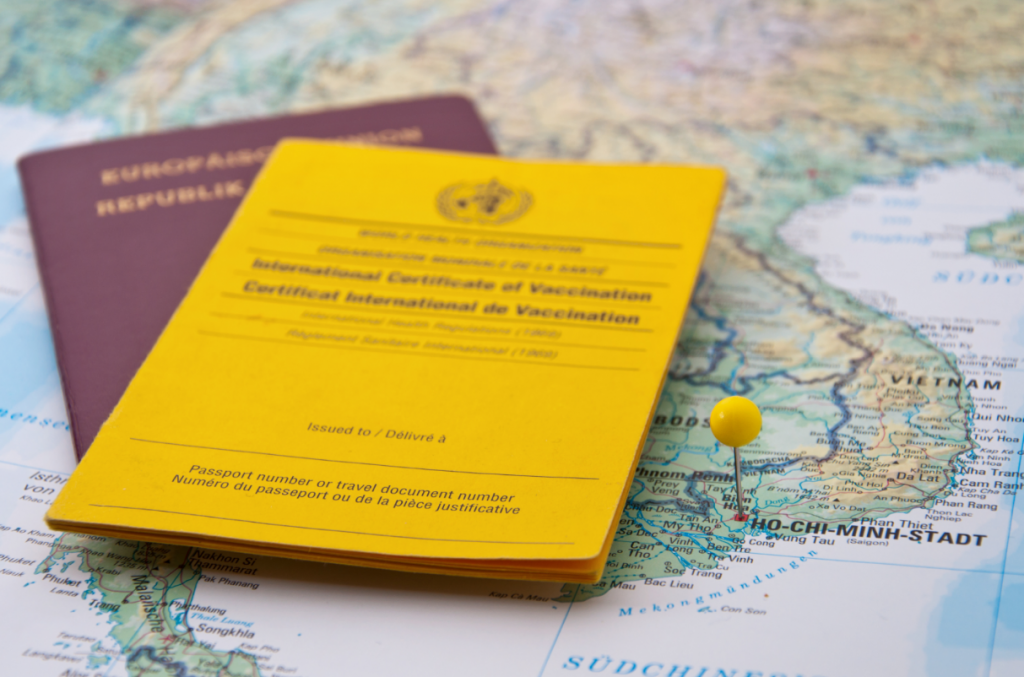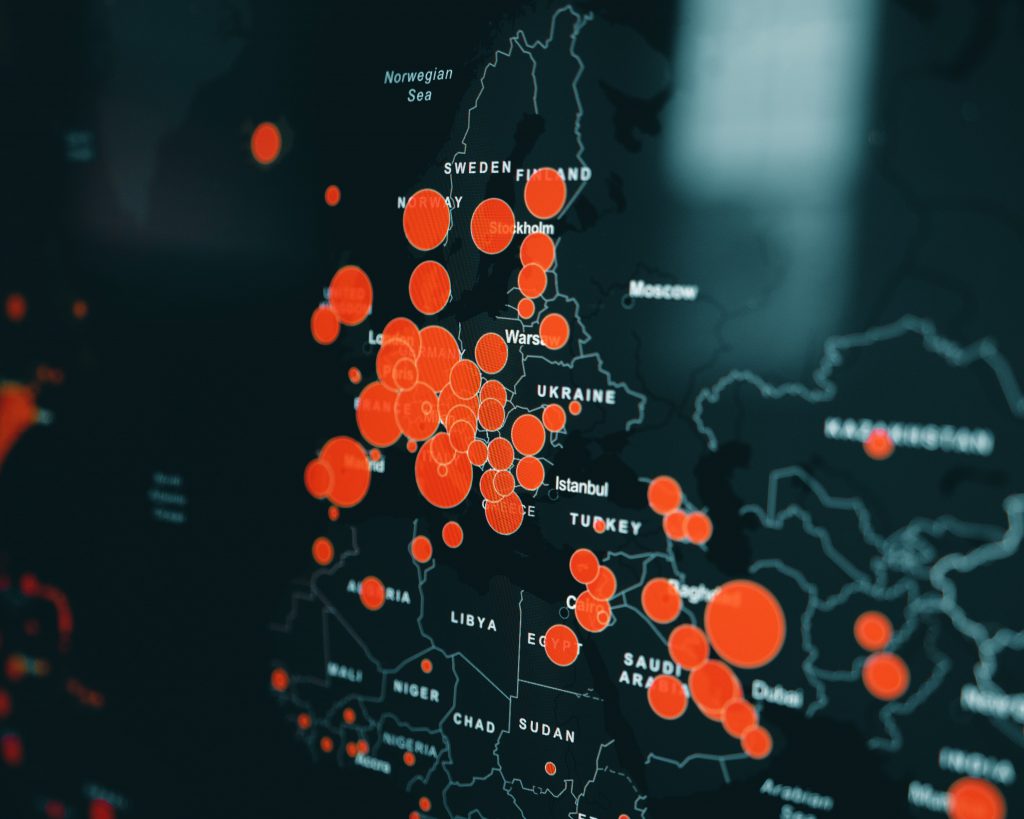Moritz Fegert leitete als Projektleiter bei foraus bis 2023 diverse qualitative Forschungsprojekte, die sich unter anderem mit globalen Gesundheitsfragen und dem Bereich der nachhaltigen Ernährungssysteme befassen. Bevor er 2020 zu foraus kam, arbeitete Moritz Fegert im Bereich Handel und Umwelt bei der WTO, für das EDA (Schweizer Mission bei der EU) und im Privatsektor. Er engagiert sich außerdem in mehreren Vereinen und Genossenschaften, die kurze Lebensmittelkreisläufe fördern.
Publications by Moritz Fegert
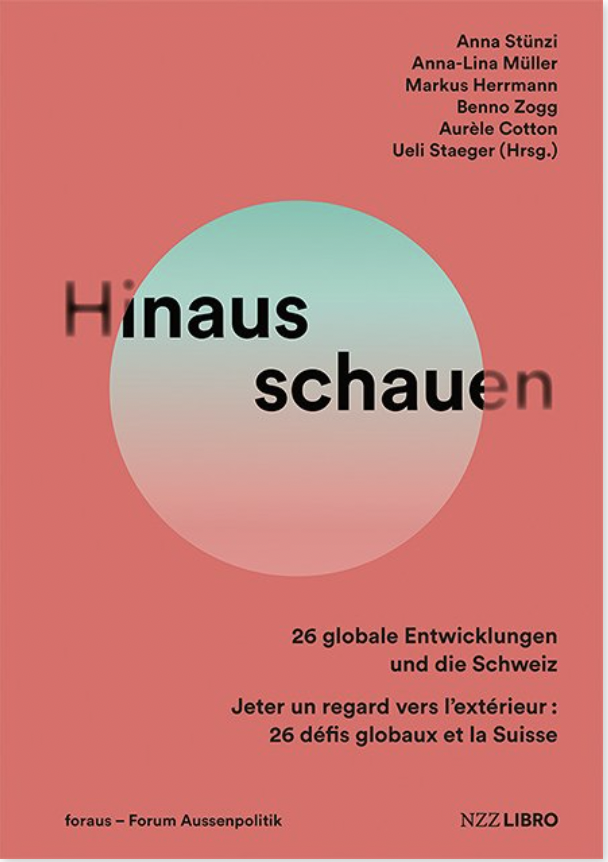
In „Hinausschauen – 26 globale Entwicklungen und die Schweiz“, 30 authors from the foraus network anlyse global challenges – concise, pointed and well-founded.
The book describes how critical hot spots, technological trends and governance & economic systems will develop and what it means for Switzerland’s foreign policy. It describes a world in which Switzerland must act, react and position itself.
Hinausschauen offers impulses to engage in the discussion about Switzerland’s position in the years to come.
Go to our book store to buy the foraus book!
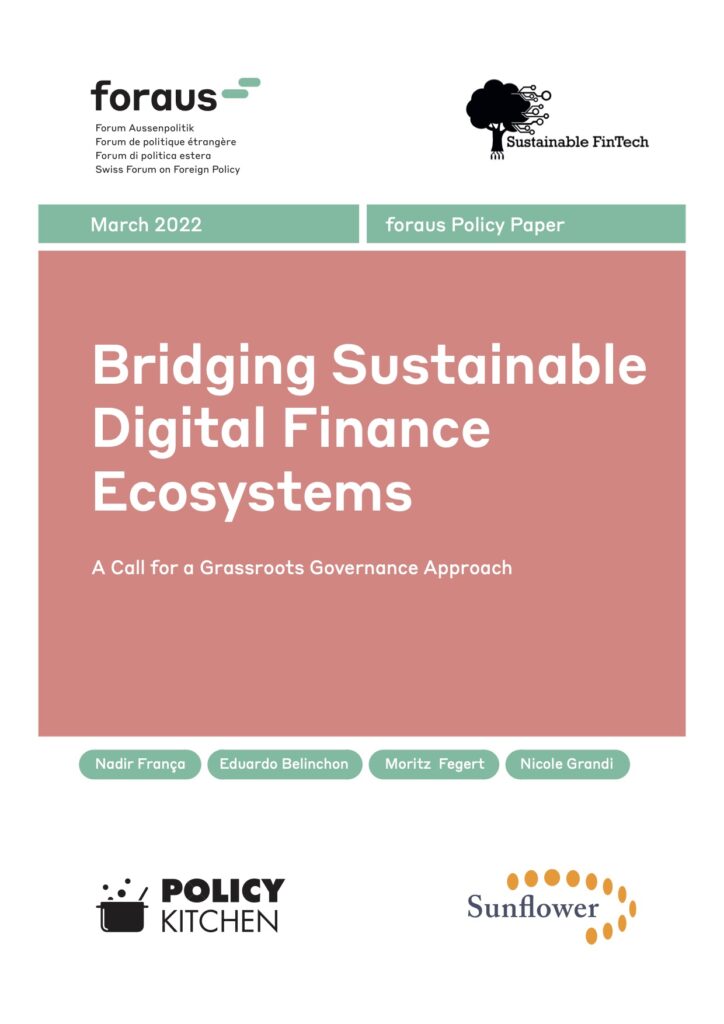
The growing attention paid to technological innovations in finance is creating substantial momentum to develop sustainable digital finance ecosystems, both at global and national levels. Acknowledging the key role that the finance industry has to play in financing the UN 2030 Agenda, grounded in the so-called ‘FinTech revolution’, several players and institutions are aiming to cooperate to steer the (digital) finance industry’s transition to more sustainability- oriented and inclusive business models. The ultimate goal is to ensure that the development of financial innovations is guided by global challenges, such as the achievement of the SDGs.
This foraus policy paper discusses the question: What would be the ideal governance model for the global sustainable digital finance ecosystem? Based on desk research, discussions with experts, and the results from the participatory process FinTechs & Sustainability: Envisioning Sustainable FinTech Bridges, the authors argue that a grassroots governance approach should be adopted following three recommendations for action, linked to three identified phases of implementation, to provide a level playing field where different players, no matter their size, can be heard, learn from each other’s experiences and support the expansion and adoption of innovations across the different ecosystems.
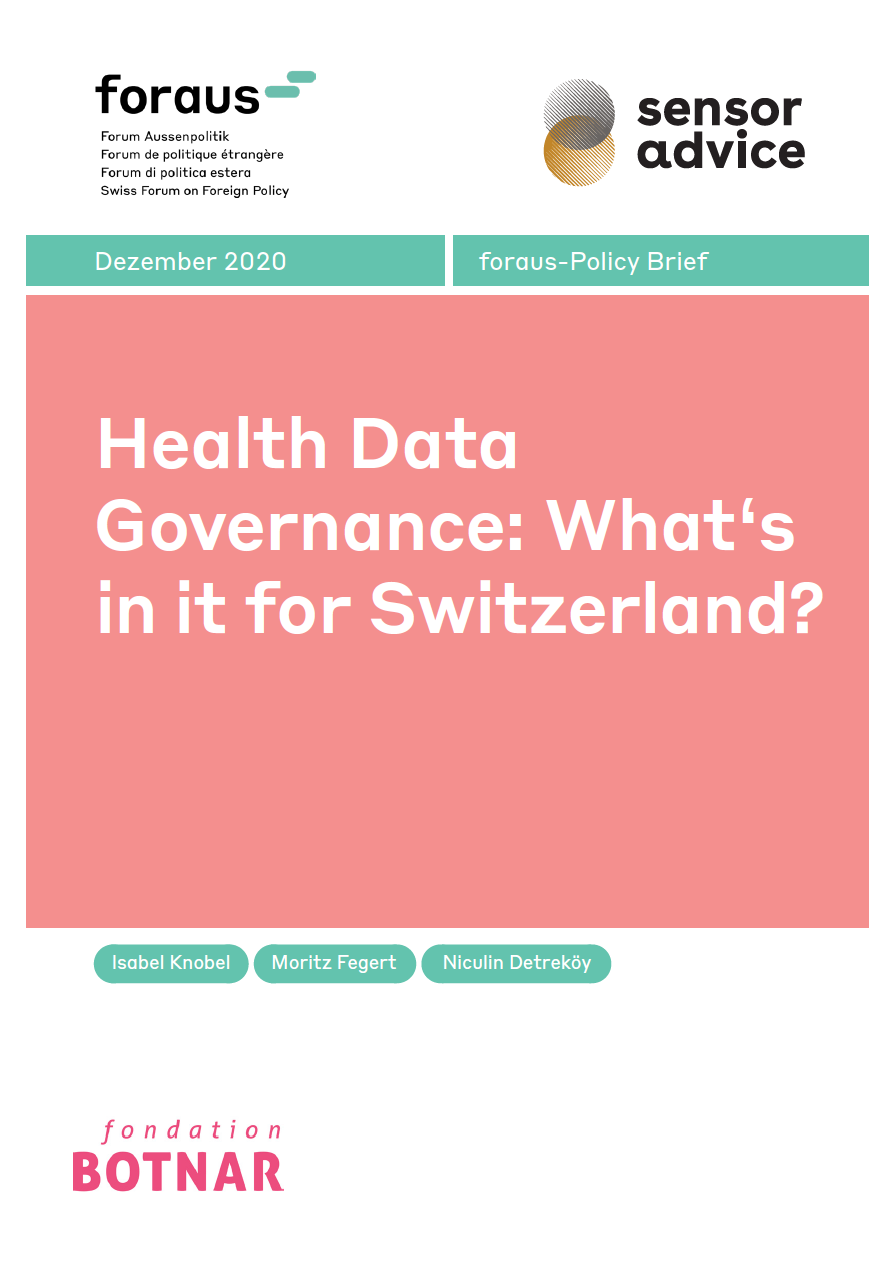
Wie muss die Nutzung von Gesundheitsdaten national und international geregelt werden, damit ihr Potenzial bestmöglich umgesetzt werden kann und alle davon profitieren? Und welche Rolle kann die Schweiz dabei spielen? What’s in it for Switzerland? In dieser Studie werden 12 breit abgestützte Handlungsempfehlungen für eine bessere Gesundheitsdaten-Governance präsentiert. Sie sind das Ergebnis eines nationalen partizipativen Prozesses, den foraus und Sensor Advice im Jahr 2020 gemeinsam durchgeführt haben.
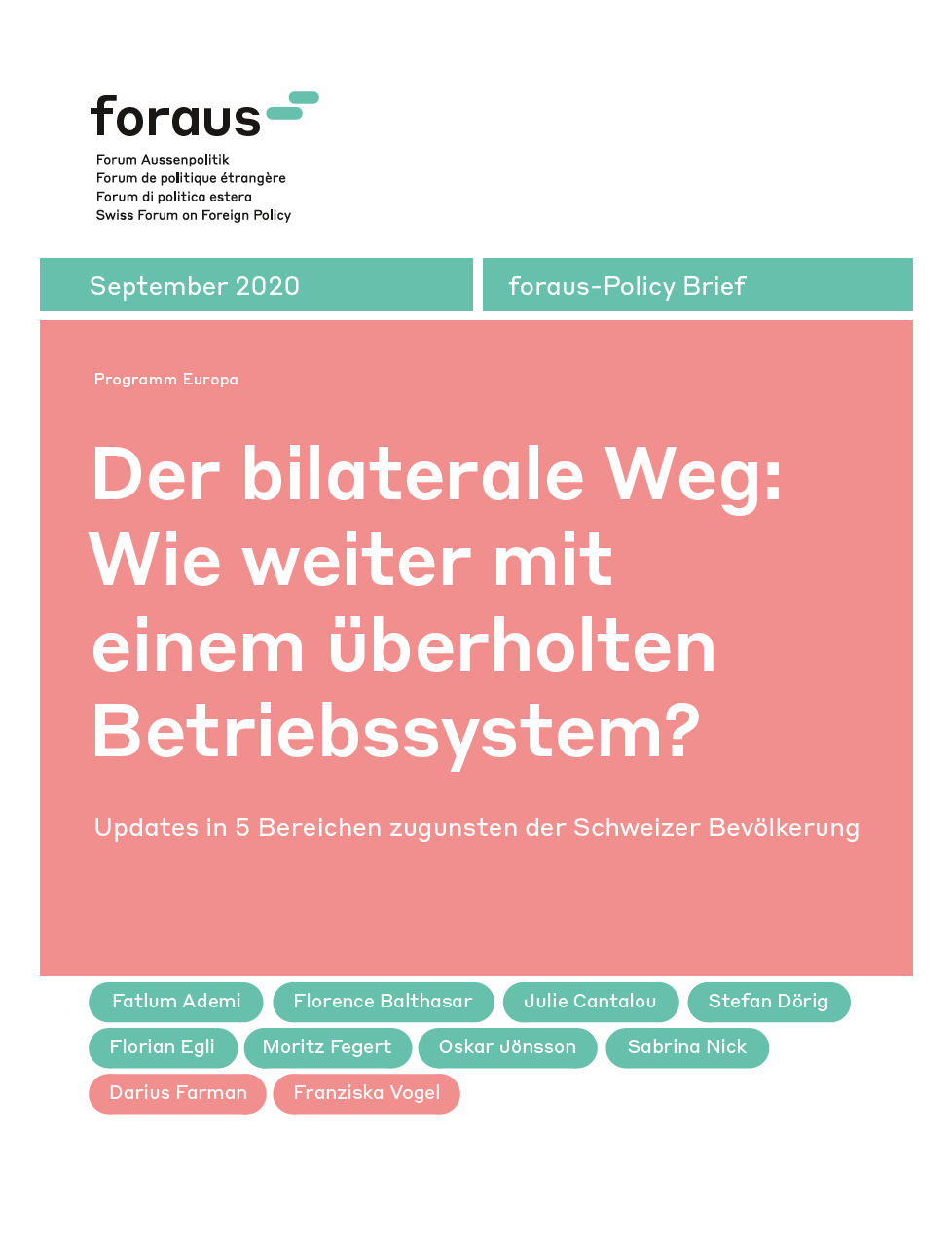
foraus präsentiert im neuen Diskussionspapier konkrete Handlungsvorschläge, wie die Beziehung zwischen der Schweiz und der Europäischen Union in fünf Bereichen vertieft werden sollen. Eine bessere Zusammenarbeit in den Dossiers Strom, Gesundheit, Telekommunikation, Umwelt und Forschung würde eine markante Verbesserung der Lebensqualität für SchweizerInnen bedeuten. Voraussetzung dafür ist die Unterzeichnung des institutionellen Abkommens.
Dans son nouveau papier de discussion, le foraus présente des propositions d’actions concrètes sur la manière dont les relations entre la Suisse et l’Union européenne devraient être approfondies dans cinq domaines. Une meilleure coopération dans les domaines de l’électricité, de la santé, des télécommunications, de l’environnement et de la recherche signifierait une nette amélioration de la qualité de vie des citoyen·ne·s suisses. Une condition préalable à cela est la signature de l’accord institutionnel.
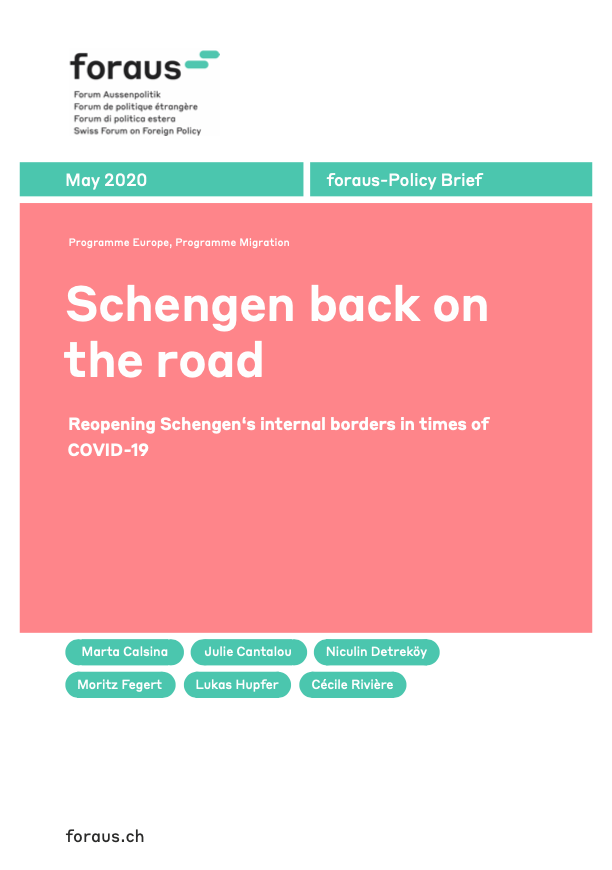
Since the end of January 2020 and the first cases of COVID-19 in Europe, the Schengen member states have been operating in a rapidly changing environment. In an attempt to limit the spread of the epidemic, they have introduced temporary border controls and travel restrictions within the Schengen area with little to no coordination. The economic, social and political costs of these unilateral measures are putting a heavy strain on the Schengen system and its member states. The absence of a joint response could have a long-lasting impact on the Schengen project and, more generally, on European integration.







